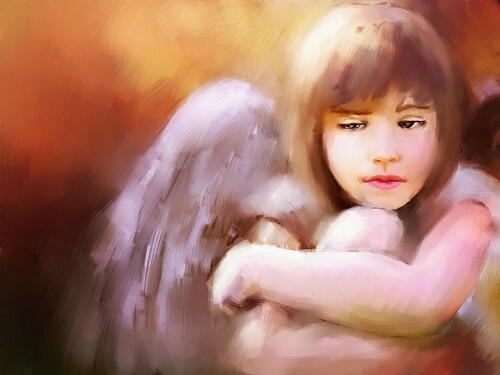The Pain of Those with No Name

Let’s talk about the pain of those who have no name, only a label. Who have the scarlet letter of a mental health diagnosis pinned to their chest, condemned to a misunderstood existence. Who have been labeled as dangerous, weird, eccentric, harmful. Who are misunderstood by people who haven’t bothered to get to know them.
They’re the ones who you see on the street. They’re the local crazy guy, the eccentric neighbor, the strange man on the street. They’re not people, they’re a set of labels, usually perpetuated over time, that have dehumanized them in other people’s eyes. They’re an empty diagnosis, people with no identity.
You might be so used to hearing these labels that you haven’t stopped to think about how these people feel when they hear them. You might even think that they laugh at them because they think they’re just as funny as you do. But maybe they laugh because they don’t have the strength to deal with the people who judge them at first sight and dismissed them just for being different. How would you feel if you received that kind of judgment, dismissal, and lack of empathy?
“Once you label me you negate me.”
-Søren Kierkegaard-

Paper hopes
At first, people thought that if they had a diagnosis, a legitimate reason to feel bad, they could receive treatment and solve their problems. But in most cases, that label that ties them to the state of their mental health is more of a burden than a solution.
It’s a burden because in society’s eyes, they become dangerous, aggressive, uncontrollable, and untrustworthy. And then there’s no work for them, or hope for a better life, because the label has condemned them to a life in exile along with all the other different, forgotten people.
And then they’re left with nothing but pain, as they watch their paper dreams sink beneath the water upon being labeled. And even so, society wants to reintegrate them. But why, if they’re only going to judge them and not give them the opportunity to show how much they’re worth and how much they can do?
“It’s pathetic how we can’t live with the things we don’t understand. How we need everything labeled and explained and deconstructed. Even if it’s for sure unexplainable.”
-Chuck Palahniuk-

Inadequate treatment
But the hell of their forgotten existence doesn’t stop there. They also feel marginalized in the healthcare system. There are empirically valid treatments for various illnesses, but they’re not even given access to them. Instead, their health is placed in the hands of a pill.
In Spain, according to data from an ESEMeD study, for a disorder as well-known and with as high a prevalence as depression, 62% of people don’t have access to adequate psychological treatment. Instead, it’s handled with medication prescribed by a psychiatrist or primary care doctor. However, the treatment of choice for depression, according to the World Health Organization, includes both pharmacological treatment and psychotherapy.
In addition, when we complain about cuts to healthcare, we always forget about those affected by mental health issues. We think it’s far away from us, something that belongs to those strange, different, “other” people, but that’s not the case. One out of every five Spaniards will develop a mental illness in their lifetime.
Also, the number of suicides in Spain is double the amount of deaths due to motor accidents. And the amount of antidepressants consumed has multiplied by four. But this hasn’t reduced the suicide rate – it’s still increasing.
Does this mean that psychotropic medication is pointless? Actually, medication can help, but by itself it’s more of a bandage than a solution. Also, for light or moderate depression, psychotherapy shows better and longer-lasting results than medication. In cases of serious depression, patients benefit more from a combination of therapeutic and pharmacological treatment.
Scientific studies also indicate that psychological treatment should be the first line of treatment for anxiety issues, before trying medication. But in Spain, due to the scarcity of psychological clinics in public hospitals, people rarely have access to this kind of treatment, especially considering that there are 4.3 psychologists for every 100,000 people, which is four times less than the average in Europe.

The pain of families who feel judged and misunderstood
When we talk about the people with no name, the forgotten, we can’t forget about the only people who never judge them and are always by their side. The people who fight next to them day after day so that the world can be a less hostile place for them. Don’t forget that behind every mentally ill person, there’s a family that often feels judged and misunderstood as well.
When people throw around labels like they’re harmless classifications, when they refer to people with mental illnesses like that, they’re also blaming their families for their illness. They don’t have adequate support and treatment, and yet their families are judged, too.
Let’s start calling the forgotten by name instead of causing them more pain. Inform yourself about different mental illnesses before you develop preconceived notions about them, because they’re usually incorrect. Learn before you judge, and above all, put yourself in their place. There’s no other place to start if you really want to help them.
Let’s talk about the pain of those who have no name, only a label. Who have the scarlet letter of a mental health diagnosis pinned to their chest, condemned to a misunderstood existence. Who have been labeled as dangerous, weird, eccentric, harmful. Who are misunderstood by people who haven’t bothered to get to know them.
They’re the ones who you see on the street. They’re the local crazy guy, the eccentric neighbor, the strange man on the street. They’re not people, they’re a set of labels, usually perpetuated over time, that have dehumanized them in other people’s eyes. They’re an empty diagnosis, people with no identity.
You might be so used to hearing these labels that you haven’t stopped to think about how these people feel when they hear them. You might even think that they laugh at them because they think they’re just as funny as you do. But maybe they laugh because they don’t have the strength to deal with the people who judge them at first sight and dismissed them just for being different. How would you feel if you received that kind of judgment, dismissal, and lack of empathy?
“Once you label me you negate me.”
-Søren Kierkegaard-

Paper hopes
At first, people thought that if they had a diagnosis, a legitimate reason to feel bad, they could receive treatment and solve their problems. But in most cases, that label that ties them to the state of their mental health is more of a burden than a solution.
It’s a burden because in society’s eyes, they become dangerous, aggressive, uncontrollable, and untrustworthy. And then there’s no work for them, or hope for a better life, because the label has condemned them to a life in exile along with all the other different, forgotten people.
And then they’re left with nothing but pain, as they watch their paper dreams sink beneath the water upon being labeled. And even so, society wants to reintegrate them. But why, if they’re only going to judge them and not give them the opportunity to show how much they’re worth and how much they can do?
“It’s pathetic how we can’t live with the things we don’t understand. How we need everything labeled and explained and deconstructed. Even if it’s for sure unexplainable.”
-Chuck Palahniuk-

Inadequate treatment
But the hell of their forgotten existence doesn’t stop there. They also feel marginalized in the healthcare system. There are empirically valid treatments for various illnesses, but they’re not even given access to them. Instead, their health is placed in the hands of a pill.
In Spain, according to data from an ESEMeD study, for a disorder as well-known and with as high a prevalence as depression, 62% of people don’t have access to adequate psychological treatment. Instead, it’s handled with medication prescribed by a psychiatrist or primary care doctor. However, the treatment of choice for depression, according to the World Health Organization, includes both pharmacological treatment and psychotherapy.
In addition, when we complain about cuts to healthcare, we always forget about those affected by mental health issues. We think it’s far away from us, something that belongs to those strange, different, “other” people, but that’s not the case. One out of every five Spaniards will develop a mental illness in their lifetime.
Also, the number of suicides in Spain is double the amount of deaths due to motor accidents. And the amount of antidepressants consumed has multiplied by four. But this hasn’t reduced the suicide rate – it’s still increasing.
Does this mean that psychotropic medication is pointless? Actually, medication can help, but by itself it’s more of a bandage than a solution. Also, for light or moderate depression, psychotherapy shows better and longer-lasting results than medication. In cases of serious depression, patients benefit more from a combination of therapeutic and pharmacological treatment.
Scientific studies also indicate that psychological treatment should be the first line of treatment for anxiety issues, before trying medication. But in Spain, due to the scarcity of psychological clinics in public hospitals, people rarely have access to this kind of treatment, especially considering that there are 4.3 psychologists for every 100,000 people, which is four times less than the average in Europe.

The pain of families who feel judged and misunderstood
When we talk about the people with no name, the forgotten, we can’t forget about the only people who never judge them and are always by their side. The people who fight next to them day after day so that the world can be a less hostile place for them. Don’t forget that behind every mentally ill person, there’s a family that often feels judged and misunderstood as well.
When people throw around labels like they’re harmless classifications, when they refer to people with mental illnesses like that, they’re also blaming their families for their illness. They don’t have adequate support and treatment, and yet their families are judged, too.
Let’s start calling the forgotten by name instead of causing them more pain. Inform yourself about different mental illnesses before you develop preconceived notions about them, because they’re usually incorrect. Learn before you judge, and above all, put yourself in their place. There’s no other place to start if you really want to help them.
This text is provided for informational purposes only and does not replace consultation with a professional. If in doubt, consult your specialist.







